Moon Sports > Basketball > 【Old General】The most powerful puzzle! The character pointed by Riley!
【Old General】The most powerful puzzle! The character pointed by Riley!
He is the best role player in the NBA according to Pat Riley; even though he has been unemployed for more than half a year at the age of 38, he is still the last piece of the championship puzzle valued by the Green Army's Big Three.
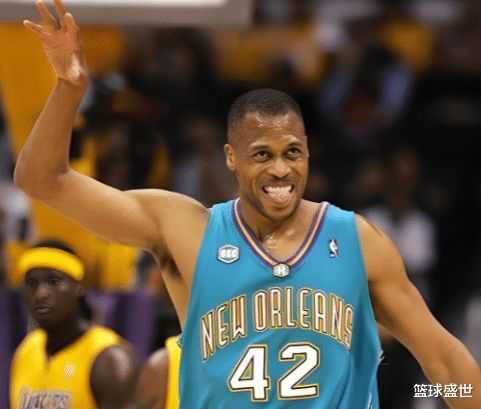
comes from PJ Brown, a player that most fans may not be familiar with, but is a player that every team coach wants to have.
Born in a small town in Louisiana in the south of the United States, Brown's parents chose to divorce when he was in middle school, leaving only his mother, who worked as a maid to raise the five children in the family.
"My mother worked during the day, and as the eldest child, I had to take care of my younger siblings. When they got older, I had to go out to work to earn money to supplement the family. And my favorite at that time was football. I had no formal basketball training when I was a child."
For PJ Brown at that time, it was rare for him to have a stable income, so he chose the military path early. But at that time, his figure was so outstanding that it was difficult for people not to notice him. In his sophomore year of high school, he was over two meters tall and faced repeated persuasion from the school and team coach to join the basketball team and thus began his basketball career.
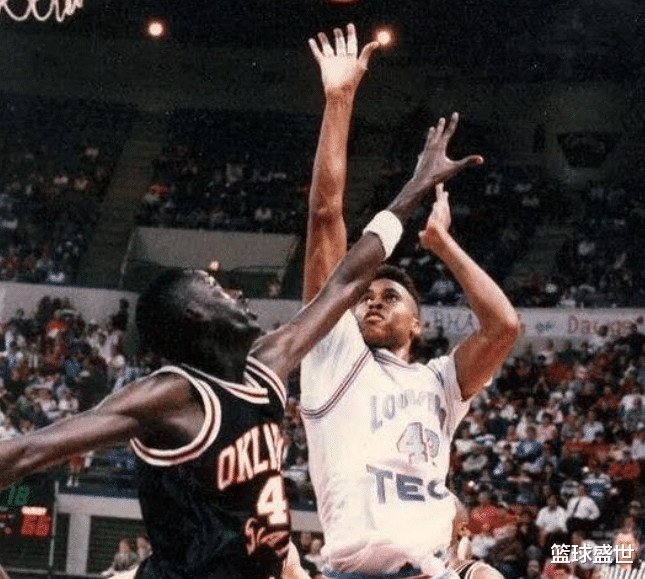
In the first year after joining the team, P.J. Brown was selected to the best team in the state, received a scholarship from Louisiana Tech, and became a college student of Karl Malone and Paul Millsap. In the end, Brown played at Louisiana Tech for four years and led the team to two conference championships.
In the subsequent 1992 draft, P.J. Brown was selected by the New Jersey Nets with the 29th overall pick in the second round. However, because the Nets at that time were only willing to sign with him for the minimum salary of 140,000, Brown refused to sign and went to play in European competitions. Finally, he signed a one-year short-term contract with the Greek League.
During the year he played in Europe, Brown averaged 17 points and 13.7 rebounds per game, which finally impressed the Nets again. A year later, they signed a professional contract with him with an annual salary of 2.4 million. After coming to New Jersey, Brown's playing time and scoring average began to gradually increase, but most of the time he was just an ordinary rotation. It was not until he was signed by the Heat in 1996 that he finally made a name for himself.
At that time, when the league's salary was skyrocketing, the Heat chose to sign a seven-year, 36 million-dollar high-salary contract with him; many media were questioning whether a character like PJ Brown was worthy of such a big contract.
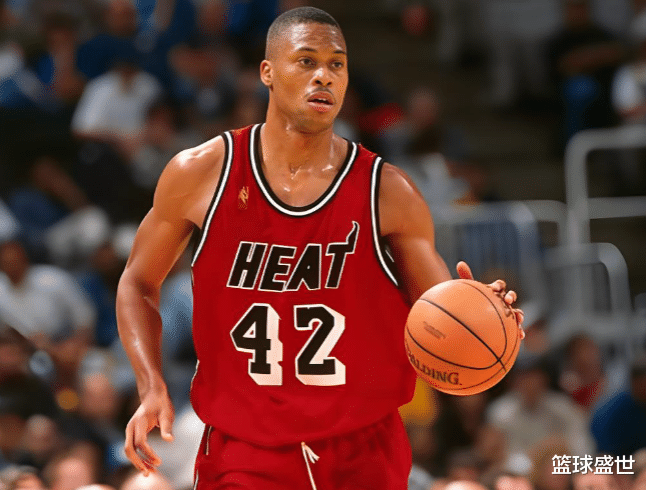
Just coming to the Heat led by Riley, PJ Brown quickly showed his prominence. He was selected to the All-Defensive Second Team in 1997. He was selected again in 1999 and 2001 after being traded to the Hornets. He was selected to the All-Defensive Second Team three times in his career.
Thanks to the soft shooting touch that is different from the average big man, on the offensive end of the team, Riley designed many weak-side mid-range jumper tactics for him. Relying on this long-range shot, Brown gradually began to make a name for himself in the league.
What really made Brown famous came from a controversial wrestling incident.
The Heat were in dialogue with the Knicks in the second round of the playoffs. In Game 5 of the series, the Heat already had a double-digit lead before the end. When Hardaway was making a free throw, the Knicks' Charlie Ward pushed Brown out of the penalty area during the confrontation. During the confrontation, Brown threw Ward into the audience, which directly triggered a conflict between many people on both sides.
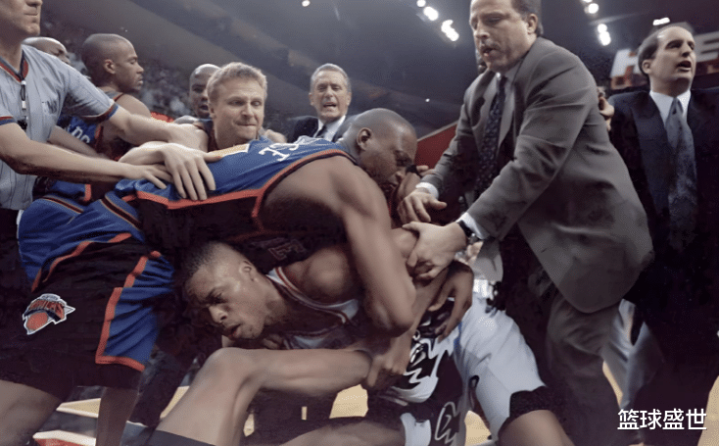
This turmoil eventually involved many people. The league imposed suspension penalties in batches in the sixth and seventh games. In the end, the Heat were able to come back from a 1-3 deficit.
Many years later, Knicks coach Van Gundy also recalled this crisis:
"After the conflict, I had a lot of criticism of Brown, but I must admit that he is an excellent player. He has the height to defend the penalty area, quick feet to defend forwards, and can also shoot from the mid-range. I respect him very much."
In the current crisis, the players involved in the two teams have naturally been criticized by the outside world, especially Brown and Ward, who ignited the conflict. But outside of this conflict, Brown is not a violent player. He won the NBA Sportsmanship Award in 2004; in 1997, he won the Kennedy Citizen Award for players' off-field contributions.
And Brown himself once said:
"I will go all out when I go on the court. I will not deliberately hurt others, but others should not want to hurt me; and I will do my part for the community after I go off the court. "
{5 2}
After 2000, as the Heat were eliminated by their old rival Knicks for three consecutive years, Pat Riley made a nine-person trade in order to change the situation. Brown and Mashburn were packaged and sent to the Hornets in exchange for Eddie Jones and Anthony Mason.
But coincidentally, in the first round of the playoffs, the two trading teams had a head-to-head dialogue, and the Hornets eventually eliminated the Heat and advanced. Brown also avenged being traded; later Pat Riley also said that trading Brown was the biggest mistake he made. This sentence is enough to prove Brown's value.
After two years in the Hornets, the Hornets moved south to New Orleans due to problems with team owner George Shinn. But this crisis was a good choice for Brown, and he was finally able to return to his hometown. Although the Hornets had a poor record in those years, with the subsequent selection of West Paul and other core players in the draft, the team gradually began to get on the right track.
Even field masters like Chris Paul have high praise for PJ Brown:
"He can always pass the ball to your hands in incredible ways. This talent is completely innate."
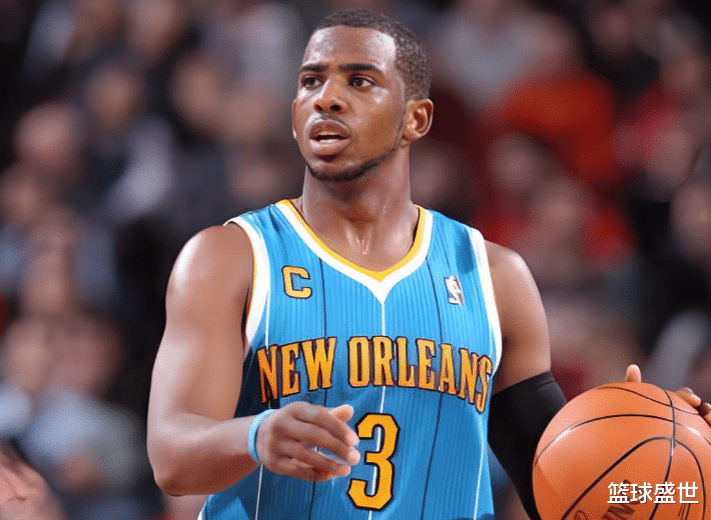
Looking at the NBA league, rookie players Players are often "bullied" by veterans in their first year. When Paul first entered the league, he even had to help Brown carry his luggage. It was not until Paul was halfway through his rookie season that the team's record improved significantly under his leadership. Brown felt that he should be allowed to focus more on the court, and then gave up Paul's task of helping carry the luggage..
In the end, the Hornets won 38 wins that year, a significant improvement of 20 wins compared to the previous year.
After the 2005--06 season, the Hornets, under the leadership of West and Paul, began to show competitiveness, and the top management made the decision to send Brown to the Bulls in exchange for Tyson Chandler. This decision also indirectly started New Orleans' heyday.
As a veteran player, Brown joined the young Bulls. Not only was he far away from his hometown, but his role in the game was also greatly reduced. His playing time also reached a career low of 20 minutes in 2014. Although he still played 72 games throughout the season, as the contract ended, he was not able to receive any signing notice throughout the offseason.

Of course, it is not that no team wants him. As early as the Hornets, his attitude towards the game won him a lot of praise. According to reports, Brown has always been in the best shape when the team's training camp opens every year. This professional attitude is also directly reflected in his attendance rate.
From entering the league in 1993 to the 2007 season, Brown had a 14-year career. Putting aside the shortened 1998-99 season and the last year of the Celtics, Brown played a minimum of 72 games in a single season, averaging 78 games per year. Even in the shortened season, Brown played in 50 games.
For a big man who spends a lot of time fighting in the paint, this kind of attendance data is considered top-notch.
Based on the excellent attendance performance, the old club Hornets had obvious shortcomings in the penalty area. The team's top management also actively recruited PJ Brown to return, but unfortunately Brown refused:
"I haven't retired yet, but I have played in the NBA for more than ten years. I want to take a breather first." "Just wait and see before deciding what to do next."
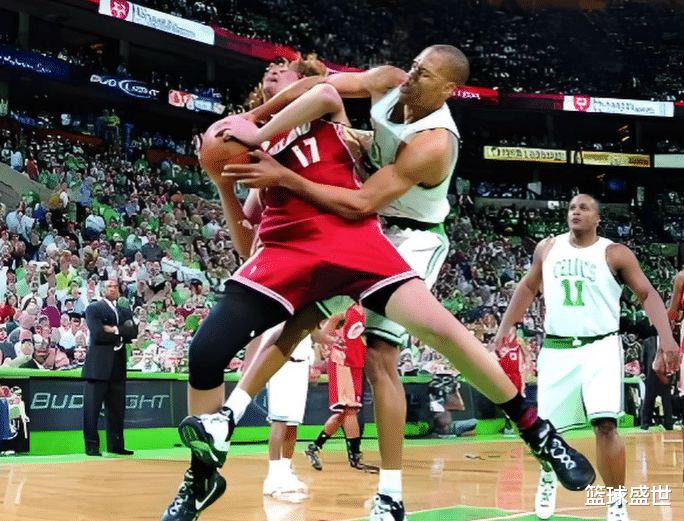
Until the 2008 All-Star Game, in order to help New Orleans, which was hit hard by the tornado, the NBA chose to hold the 2008 All-Star Game locally, which also gave the Green Army an opportunity to recruit Brown.
According to later reports from reporters, Brown's name has always been on the Celtics' recruitment list. During the All-Star weekend, Pierce first took the initiative to contact Brown, and Ray Allen followed up the next day.
Even assistant coach Clifford Ray, who had worked with Brown in the Nets, was on the Celtics' recruitment list because of this. Finally, after discussing with my family, I finally decided to join the then-huge Green Army.
The story later became clear. Although Brown did not play much playing time, he was often able to contribute highlights in key performances:
For example, in the semifinals against the Cavaliers in the tiebreaker, he scored 10 points with a 100% shooting rate to help the team advance; in the finals, he was responsible for guarding Gasol in the Lakers penalty area, helping the Green Army successfully win the 17th championship trophy in team history.
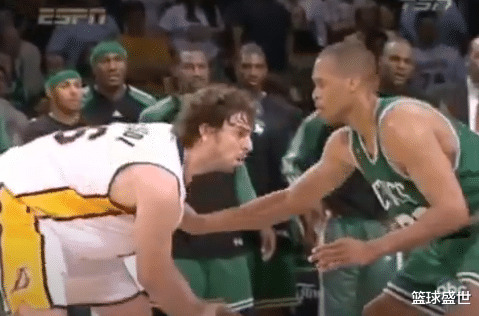
After that, Brown told reporters that when the Celtics won the championship, his career would officially end; and after that, he would choose to enjoy his retirement life.
source:bóng đá m7Related Posts
Tuoji: The fast pace of Summer League means the job search&&; The G League has a steady pace, so Yang Hansen performs better
BasketballNovember 19th. Today, Trail Blazers reporter Mike Richman talked about the difference between Summer League and Development League games in the podcast "Locked On Blazers". "Yang Hansen's offensive performance in these games in th...
more【Old General】The most powerful puzzle! The character pointed by Riley!
BasketballHe is the best role player in the NBA according to Pat Riley; even though he has been unemployed for more than half a year at the age of 38, he is still the last piece of the championship puzzle valued by the Green Army's Big Three. comes from P...
moreNo points scored in 192 seconds! The Western Conference powerhouse lost five games in a row and was reduced to a fish belly. Fox opened low and went high with 26 points.
BasketballOn November 19, the NBA regular season continues, with the Spurs playing against the Grizzlies at home. In this game, both teams had core players missing. The offense of the two teams was in a sluggish state, and the point difference never widened....
more
Hot Posts
- Seth Curry - Brothers on the same stage, Seth fights for the championship
- Anthony is officially inducted into the Hall of Fame! Maybe he only retired from the Knicks No. 7, but the Nuggets No. 15 cannot retire?
- NBA offseason turmoil: The giant chess game behind a billion-dollar contract
- Scott: Tatum seems to die when his Achilles tendon breaks, but Kobe will never do this
- American News: The Cavaliers don t need to trade core players such as Garland. They still have great potential if they are not the Lakers.
- Successfully played the role of the surprise! The Pacers forward performs amazingly in overtime?
- Questioning the Mavericks to Becoming the Mavericks! Famous reporter: Antetokounmpo is on his way to the Lakers
- Homegren burst! Thunder 149-106 Nuggets, Alexander watches 34+4+7, Harten 14+8+5
- 4.3 seconds to win the gods! Brunson s final victory tribute to Jordan, New York s new king rewrites the history of the second round pick in one game
- Booker: I hope Risashe is okay, but the referee called a timeout and gave us a technical foul which was a double mistake.
Recent Posts
-
WNBA: Female Curry scores 1,000 assists with 36+11, and defending champions 500 wins in regular season
-
Clippers G7 ushered in a new mission, Harden personally issued a "death order", Xiaoka: I accept it
-
+14 Clippers are the king! Xiaoka 27+10+5 US media joked about the Nuggets, 20+ and 5, 6 consecutive games, super stable.
-
Gordon s injury update on May 17! G7 is missing and Thunder finds another bargain, 3 chain reactions, doctors speak
-
Old teammates reunited! Kuzma s fiancee posted photos of European vacations and James and his wife appeared in surprise
-
After being traded, the Warriors boss was heartbroken...
-
The inside is here! Ayton Grant, the two core members of the Trail Blazers, is expected to join the Lakers to assist James
-
New season tour of the Spurs: The Spurs in the post-Pop era, a young storm driven by dual cores
-
Pacers backcourt core: We had bad weather, but there were even worse things in life
-
Pacers lost two reasons, Su Qun: Halliburton was injured, McConnell could not shoot three points